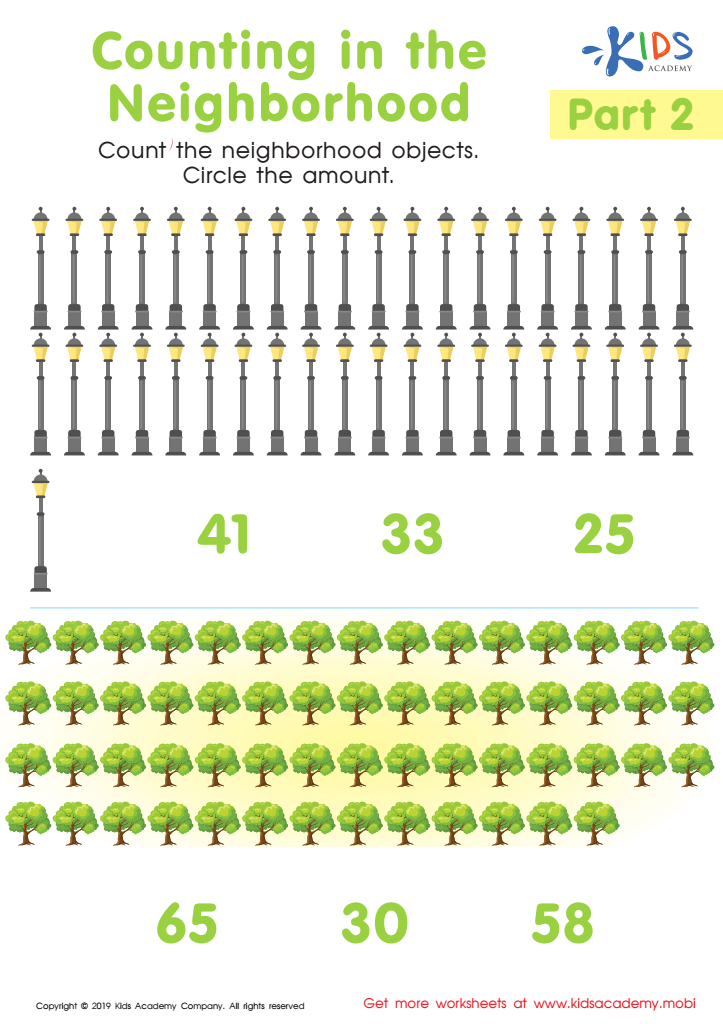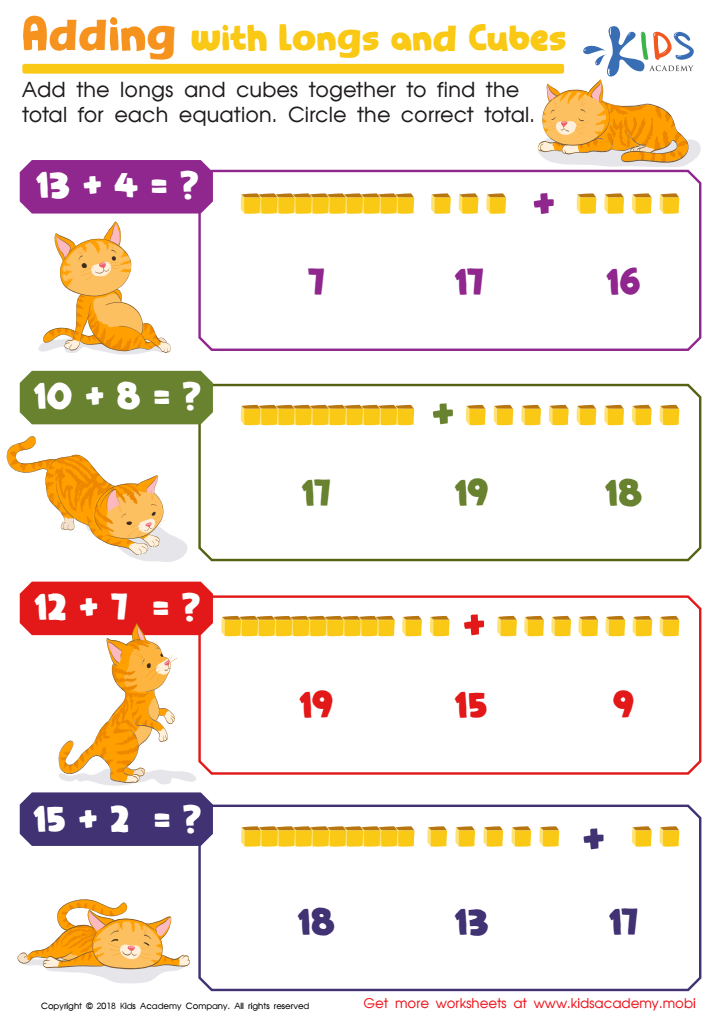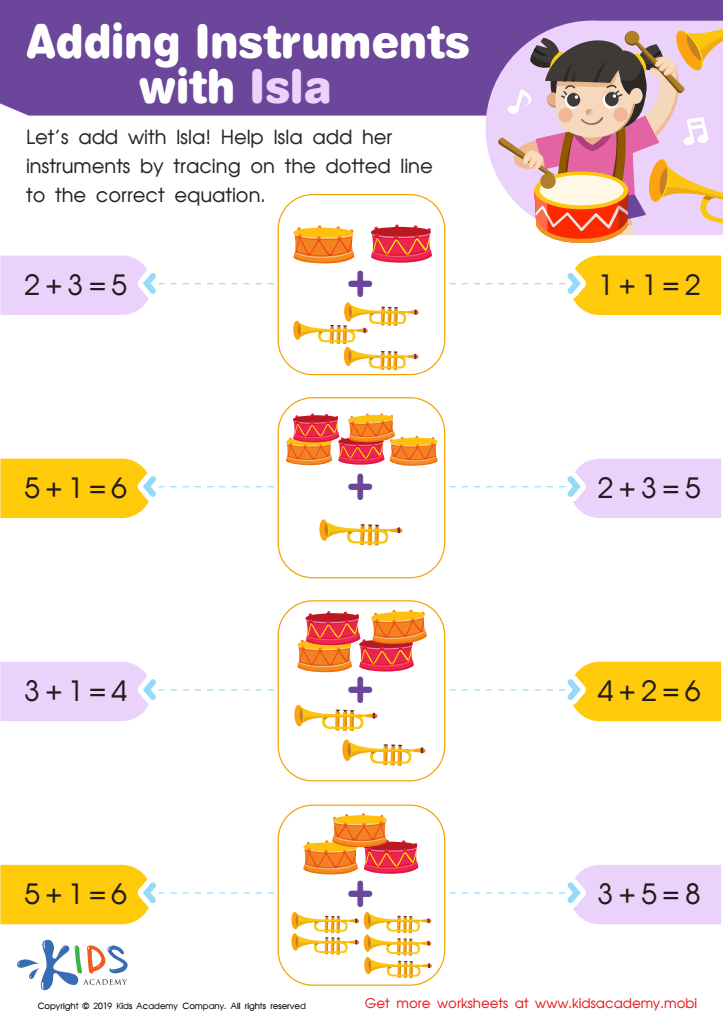Visual perception improvement Normal Math Worksheets for Ages 7-8
3 filtered results
-
From - To
Enhance your child's visual perception skills with our specially designed math worksheets for ages 7-8! Tailored to engage young learners while building essential math foundations, these worksheets promote critical visual thinking abilities and spatial awareness. Each activity focuses on patterns, shapes, and problem-solving, ensuring kids develop a strong understanding of math concepts in a fun, interactive manner. Ideal for reinforcing classroom learning or as supplementary practice at home, these visual perception improvement worksheets are perfect for nurturing confident, skilled mathematicians. Watch your child thrive as they explore numbers and visuals, creating a solid base for future math success! Discover our resources today!


Counting In The Neighborhood Part 2 Worksheet


Adding With Longs and Cubes Worksheet


Adding Instruments with Isla Worksheet
Visual perception is a crucial skill for children, especially in the context of learning mathematics for ages 7-8. At this stage, children are transitioning from basic arithmetic to more complex mathematical concepts that require strong visualization skills. Improved visual perception enhances a child's ability to identify shapes, understand spatial relationships, and organize information effectively, all of which are essential for problem-solving and reasoning in math.
Parents and teachers should prioritize visual perception exercises as these skills are foundational for later academic success. For instance, a child with strong visual perception can better understand graphs, geometric concepts, or word problems that involve visual cues. Furthermore, these abilities help in reducing errors and increasing confidence during math tasks, fostering a positive learning experience.
Incorporating activities like puzzles, pattern recognition, and drawing can enhance visual perception in engaging ways. Additionally, a strong foundation in these skills leads to improved performance in standardized tests and assessments, which often emphasize visual elements. By caring about visual perception improvement, parents and teachers actively support children's overall cognitive development, laying the groundwork for future learning, academic achievement, and a lifelong appreciation for mathematics.
 Assign to My Students
Assign to My Students


















